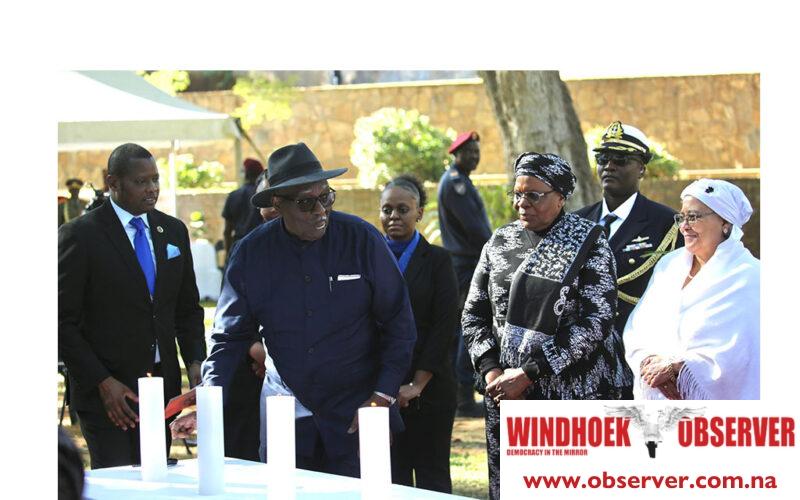Allexer Namundjebo
San people have been sidelined in the country’s genocide remembrance, says Tsumkwe-based community activist Calvin Kazibe.
He argues that the national narrative focuses mainly on the Ovaherero and Nama experiences, ignoring the colonial suffering of the Bushmen (San people).
Kazibe pointed to the inaugural Genocide Remembrance Day on 28 May as an example.
On Wednesday, the country marked its first Genocide Remembrance Day at the Parliament Gardens in Windhoek.
He said the official programme largely excluded the Bushmen’s history while highlighting the Nama and Herero experiences.
“This selective remembrance can stem from various factors, including political agendas, the quest for national identity, and the need to unify certain groups within Namibia’s post-colonial context,” Kazibe explained. “The emphasis on the Nama and Herero experiences may serve to foster a cohesive national narrative that resonates more strongly with contemporary political movements, while the Bushmen’s history might be seen as more complicated or less recognisable within that framework.”
He warned that marginalising the Bushmen’s history goes beyond memory and deepens their current socio-political invisibility.
This undermines their quest for recognition, dignity, and rights in modern Namibia.
“The marginalisation of the Bushmen’s experiences in official history affects not only their representation in public memory but also their socio-political status. Their voices continue to be ignored in decisions that impact their lives,” Kazibe said.
Kazibe called for genocide remembrance frameworks to be more inclusive of all indigenous communities who suffered under colonial rule.
“Acknowledging the full scope of violence experienced by all indigenous groups, including the Bushmen, is vital for creating pathways for healing and reconciliation,” he said.
He proposed reforms such as integrating Bushmen history into national education and including their narratives in future commemorations and public memorials.
“Only through honest and inclusive historical recognition can we achieve genuine healing,” he added.
Paramount chief of an Ovaherero faction, Hoze Riruako, expressed related concerns about the inaugural commemoration.
He said the event failed to reflect the emotions and trauma of affected communities.
“Genocide Day is about us, the affected communities. But when you look at the programme, it did not reflect that,” Riruako told the media. “We heard speeches from the head of State and the vice president, but what was lacking was a chronological depiction of what has brought us to this day.”
He said future commemorations should be more historically grounded and emotionally resonant. “Maybe next year we will come to something that will be different,” he said.
Between 1904 and 1908, German colonial forces killed more than 100,000 Ovaherero and Nama people in what historians consider the first genocide of the 20th century.
The massacres included mass executions, rape, forced displacement, and land dispossession.
The Bushmen also faced extermination campaigns, cultural erasure, and displacement from their ancestral lands during the same period, though these sufferings are less documented.
Chairperson of the Council of Traditional Leaders, Gaob Immanuel |Gaseb, called for unity among affected communities during ongoing genocide reparation talks with Germany.
“Let me call on all traditional leaders and community members from the affected communities to rally as a solid block behind the ongoing genocide negotiations,”|Gaseb urged.
He said unity was crucial for a successful outcome.
Vice President Lucia Witbooi said Genocide Remembrance Day plays a key role in educating future generations and promoting national unity.
President Netumbo Nandi-Ndaitwah, in her keynote address, said the choice of 28 May followed extensive consultations.
She stressed that remembrance is essential for collective healing.
“It was not a decision taken lightly. It is about recognising a painful part of our history and giving it the space it deserves in the national consciousness,” she said.
“We may differ on how we interpret history, but the national interest must always take precedence.”




